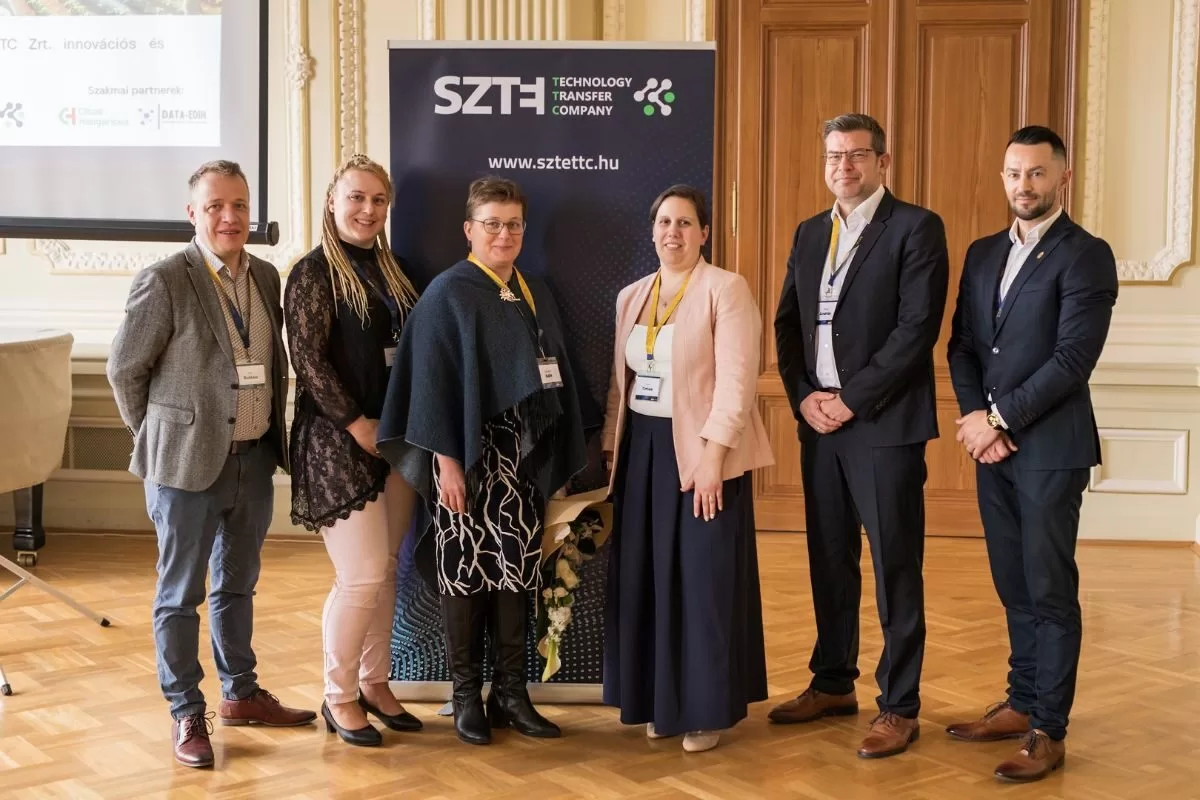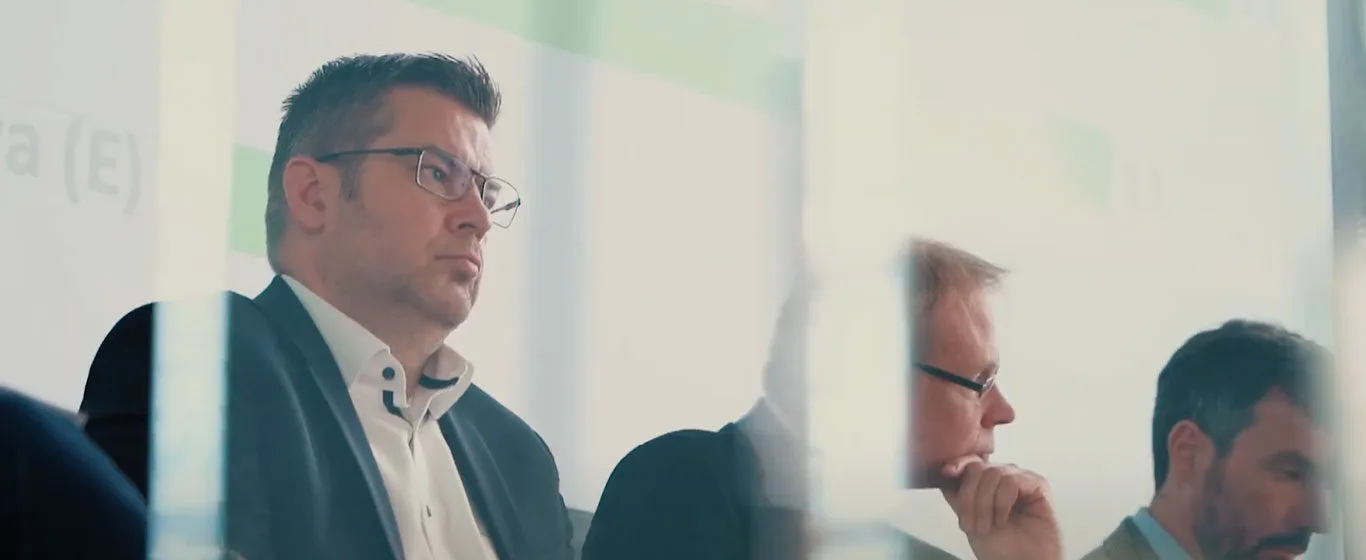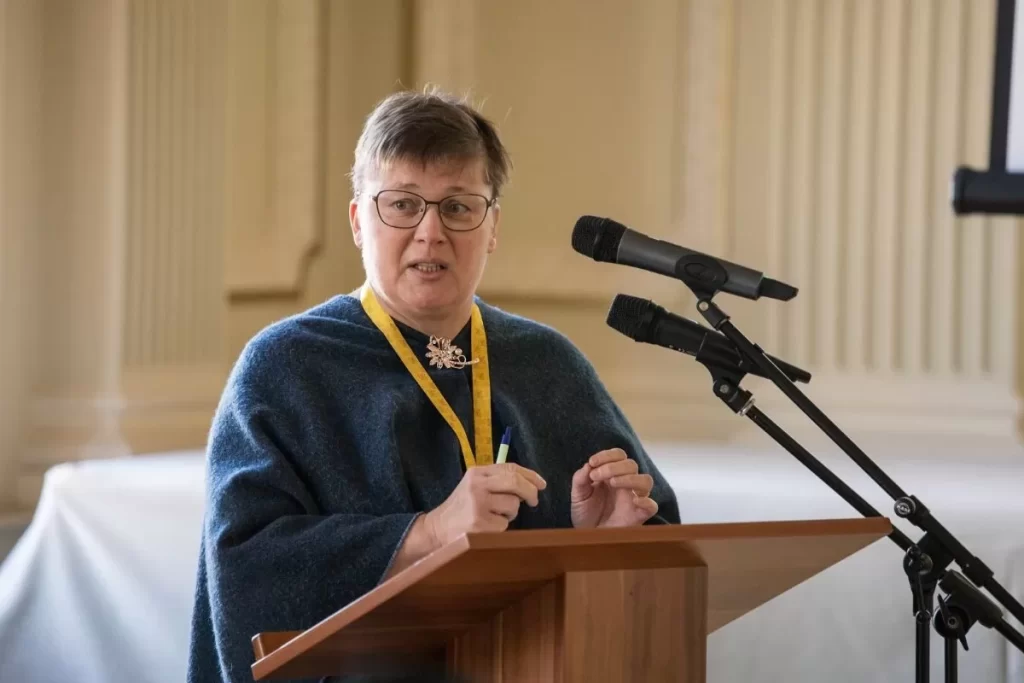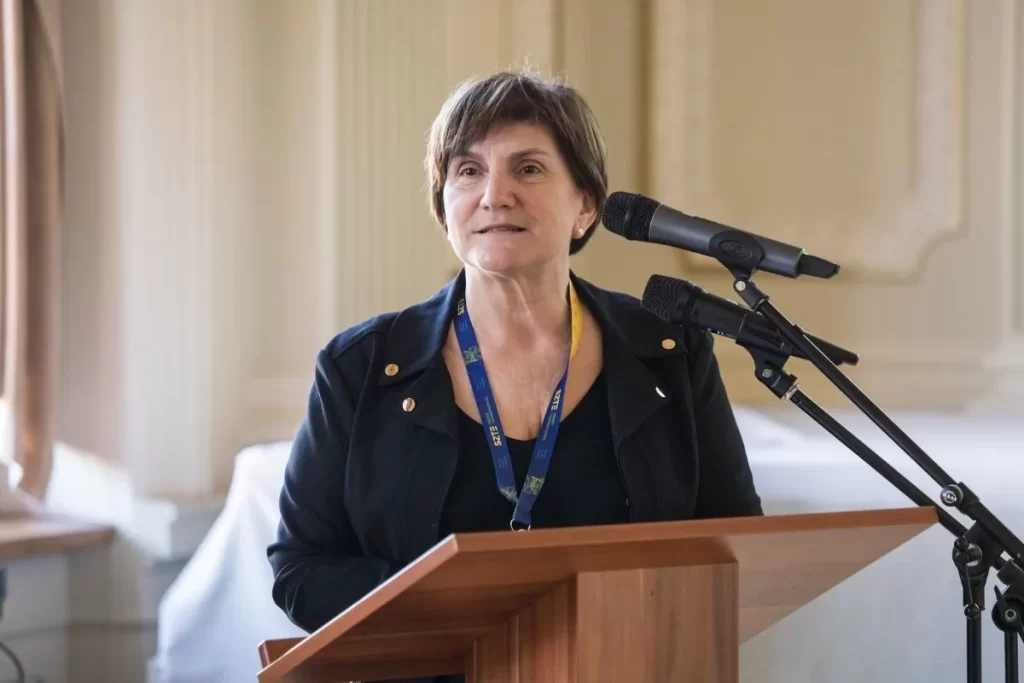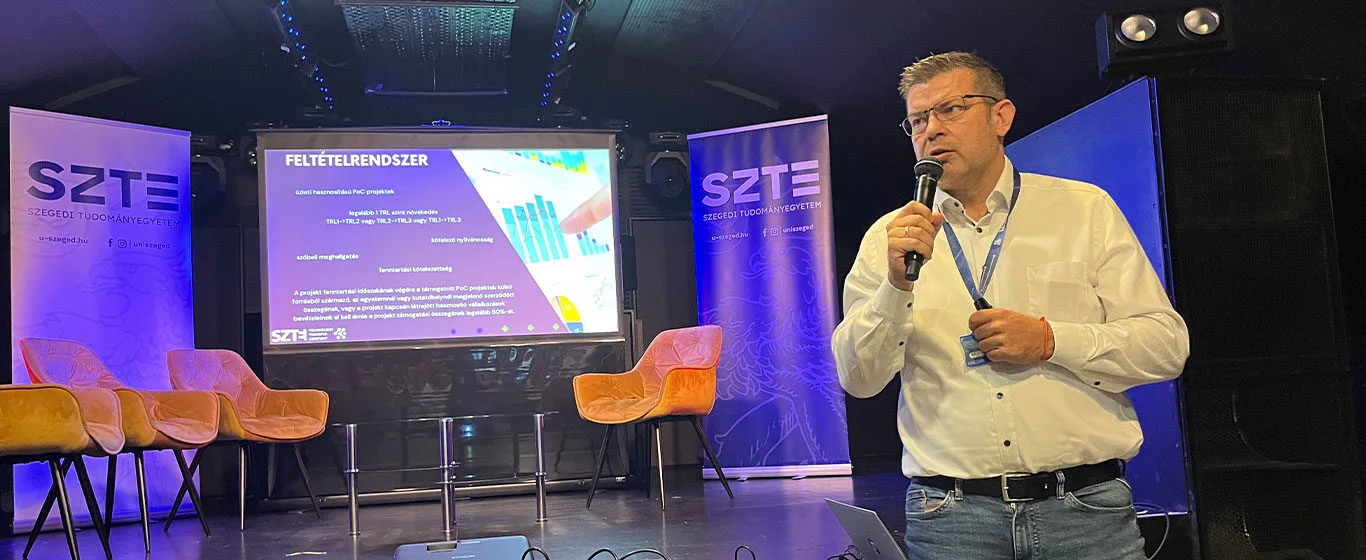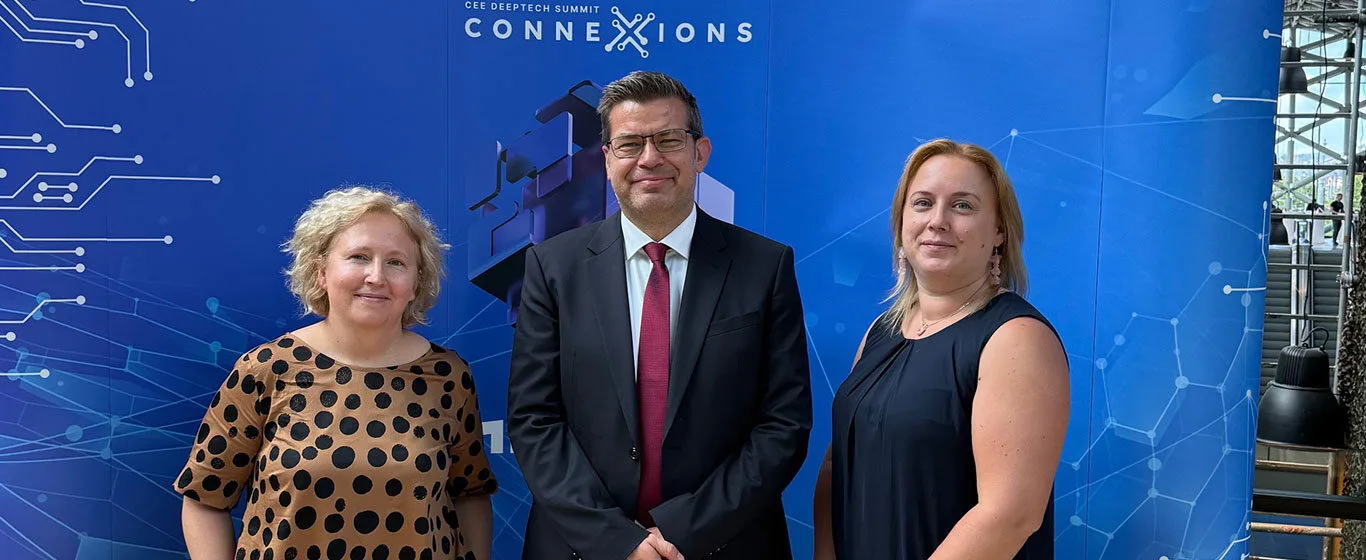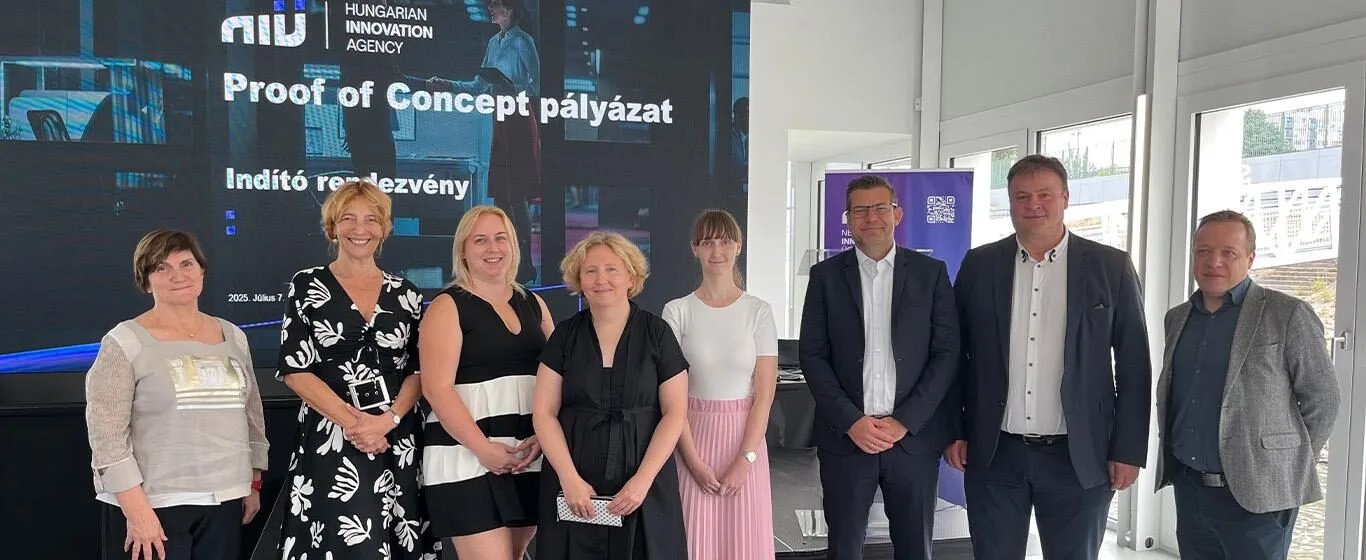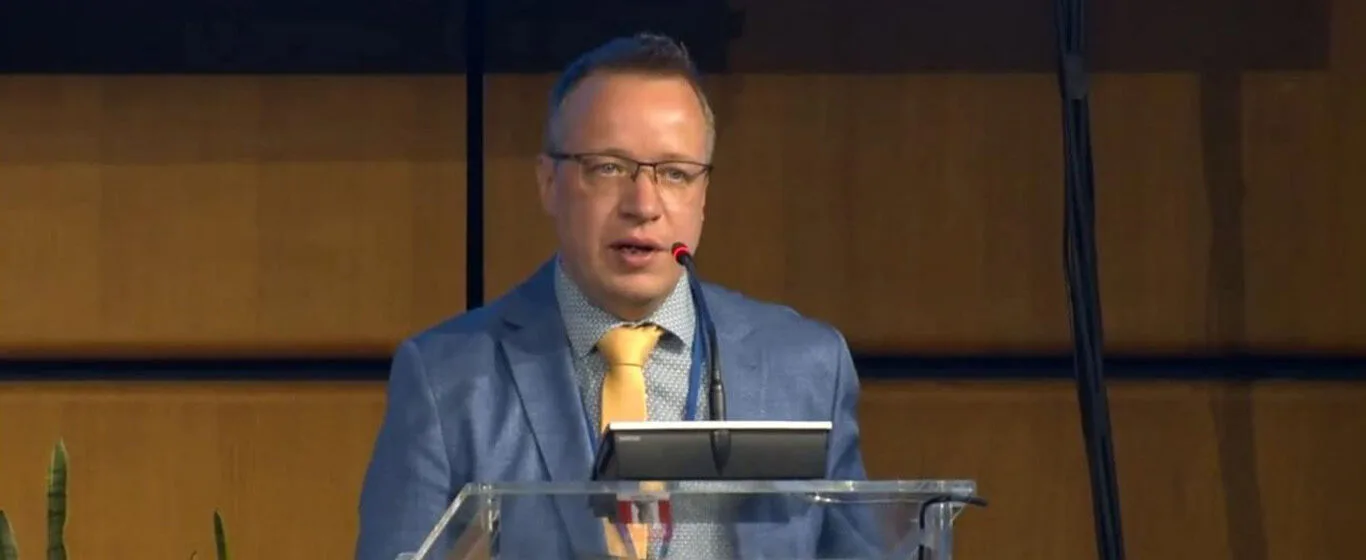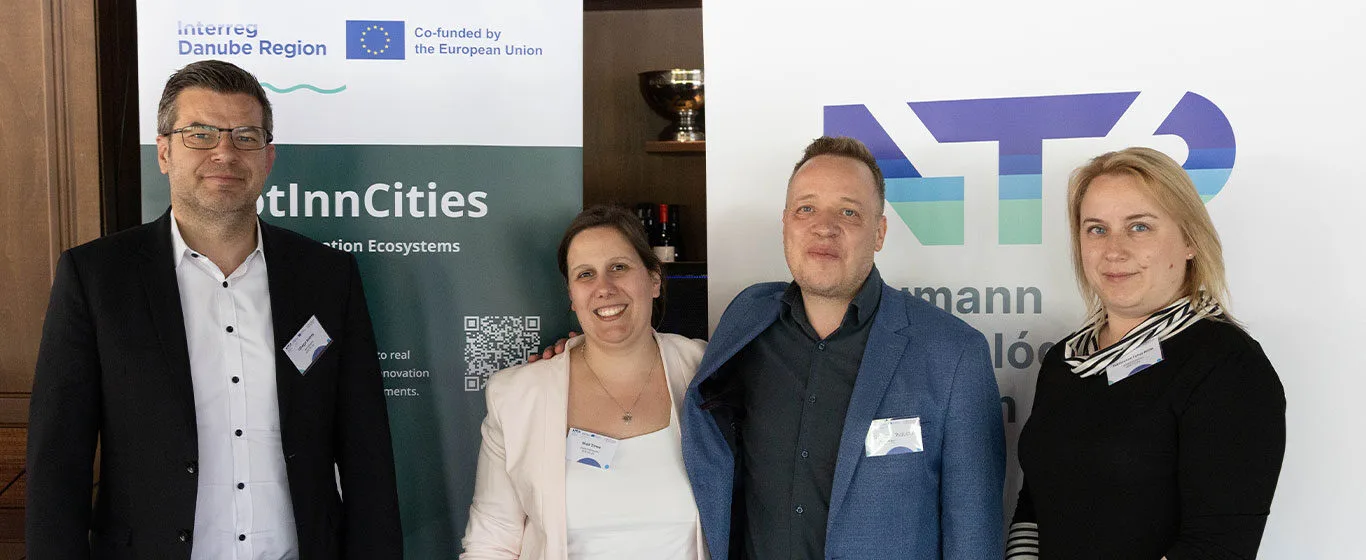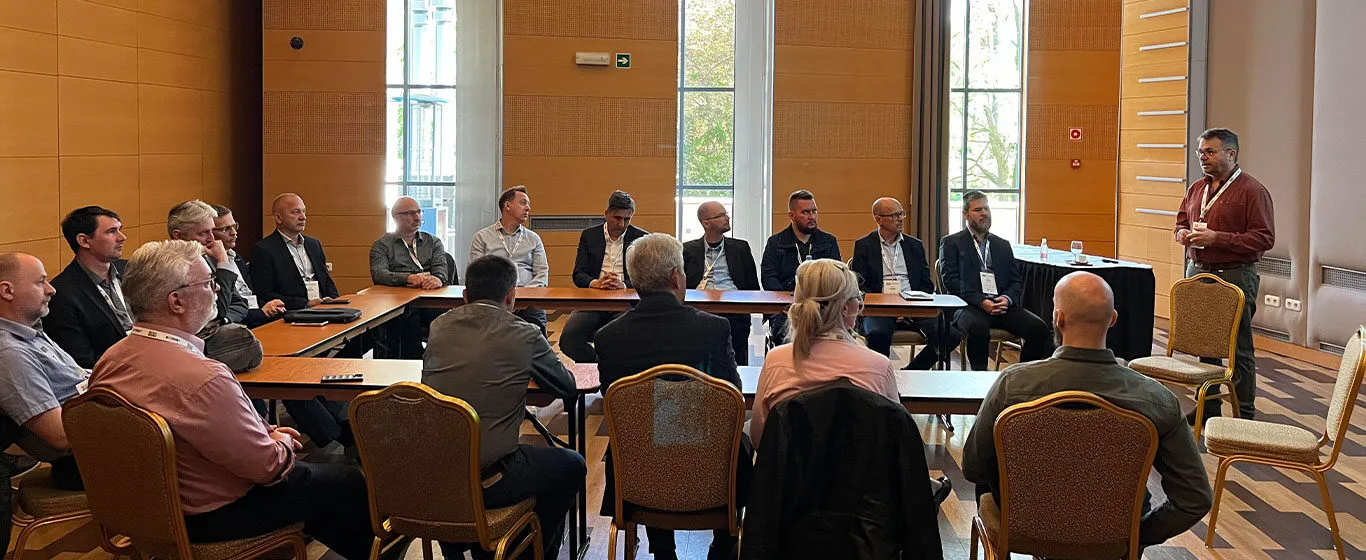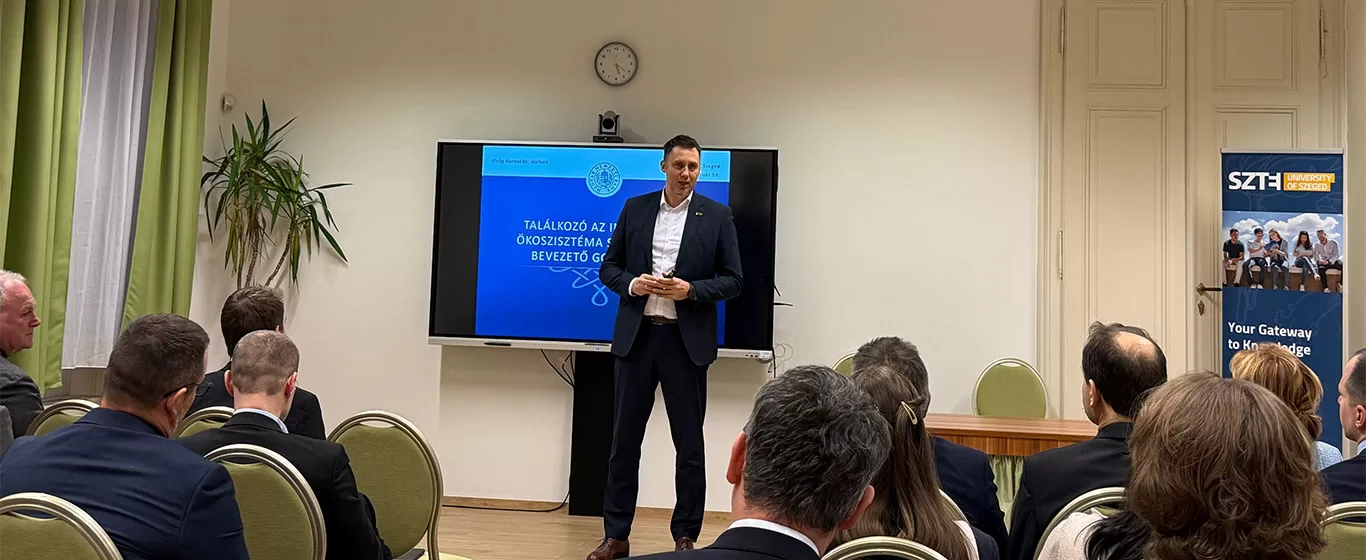Organized by the Faculty of Agriculture at the University of Szeged and SZTE TTC Zrt., the “Technology – Data – Intelligence 2025” conference, subtitled “The Application of Artificial Intelligence in the Agrifood Sector”, held both national and international significance. The professional gathering placed a particular focus on the applications of digitalization and Industry 4.0 in agriculture. Its prominence was underscored by the participation of Dr. Gábor Molnár, a senior expert from the United Nations Industrial Development Organization (UNIDO), who shared his insights during a roundtable discussion.
Participants shared the conviction that digitalization is not a future concept—it is a present reality. Now is the time to transform data into knowledge, and knowledge into sustainable, competitive practices.
The event was officially opened by Dr. Edit Mikó, Dean of the Faculty of Agriculture; Prof. Dr. Ildikó Csóka, Director General for Strategic Affairs and professional head of IKIKK; and Prof. Dr. Zoltán Kónya, Vice-Rector for Science and Innovation. In their remarks, they emphasized that the future of agriculture is no longer determined solely in the fields, but also within digital systems, data-driven decision-making, and international knowledge-sharing. Attendees were offered a comprehensive overview of how artificial intelligence is reshaping agricultural operations, improving production efficiency, and enabling new forms of collaboration between science, industry, and policymakers.
UNIDO – Hungarian Cooperation, Global Perspectives
One of the most anticipated moments of the day was the roundtable discussion with Dr. Gábor Molnár, an industrial development expert at UNIDO. His presence was particularly significant, as the UN’s specialized agency rarely takes part in Hungarian agribusiness forums—let alone in such a direct and hands-on manner as in Szeged.
In his remarks, Dr. Molnár highlighted not only the sustainable industrial and agri-innovation solutions supported by UNIDO but also outlined tangible opportunities for stakeholders in the Hungarian agricultural sector. He stressed that Hungary—leveraging its strong academic knowledge base and R&D capacities—has considerable potential to participate in international projects, both from a technological and financing perspective.
Artificial intelligence is not a goal, but a tool—but only if farmers, researchers, and developers find a shared language,” he stated. UNIDO aims to build such bridges of knowledge, especially in countries committed to developing a sustainable and competitive agricultural industry.
Dr. Molnár added that the proper management of data assets, the integration of machine learning, and the coordination of agricultural data platforms are all critical challenges for the coming decade—especially for export-oriented economies like Hungary.
The discussion served as a true forum where not only theoretical issues but also concrete partnership opportunities were addressed—several Hungarian innovation stakeholders began preliminary talks with potential international partners during the event.
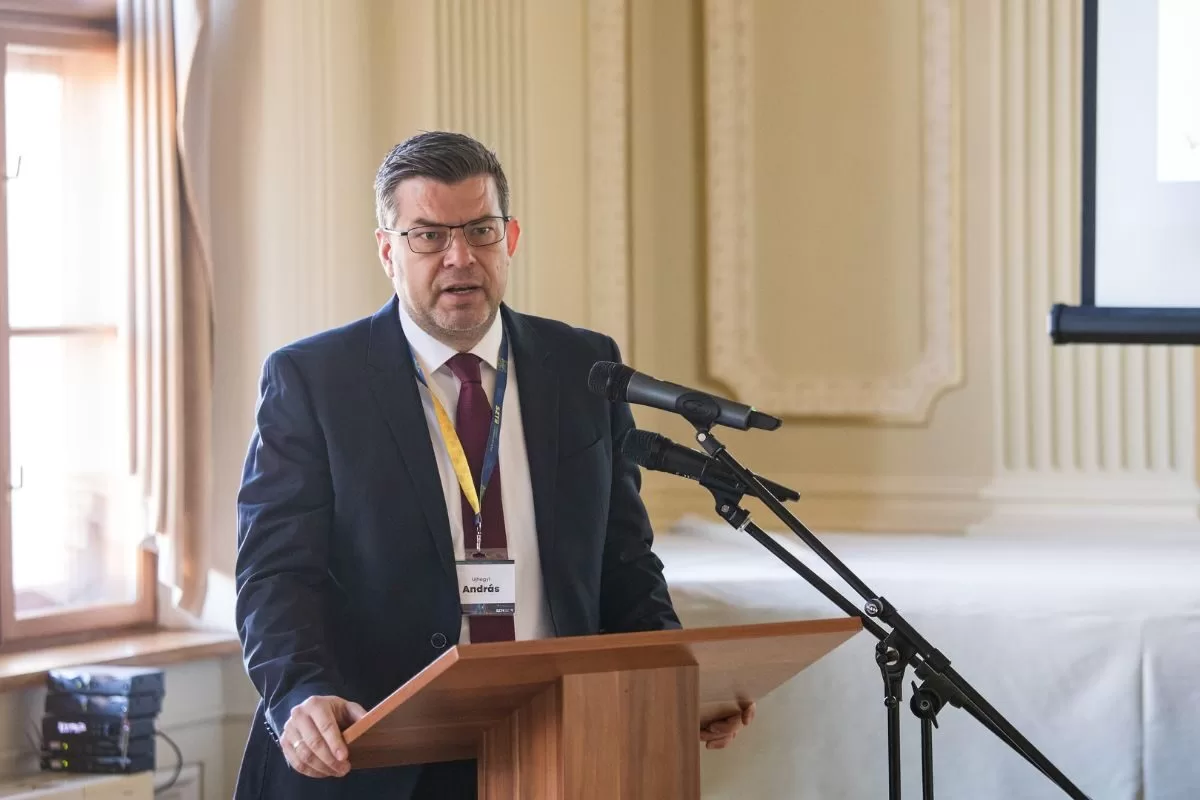
Strengthening Hungary’s Innovation Ecosystem
The event was hosted and moderated by András Ujhegyi, CEO of SZTE TTC Zrt., whose prior experience in industry and technology ensured a seamless and expert-led dialogue. As one of the conference’s co-organizers, SZTE TTC plays a key role in driving the regional innovation ecosystem forward. Its primary mission is the practical utilization of university research outputs, technological advancements, and intellectual property—particularly through partnerships with industrial actors.
The organization actively supports the creation of university spin-offs, building bridges between academia and the marketplace. It also offers services such as IP management and licensing, as well as industrial liaison, thereby directly contributing to regional economic growth. TTC’s operation stands as a prime example of how academic knowledge can be translated into concrete, economically viable outcomes.
Réka Barabás, Director of Knowledge Utilization at the National Innovation Agency (NIÜ), presented strategies for strengthening university-industry collaborations to enhance Hungary’s agritech and industrial innovation ecosystem. She highlighted the Neumann János Program, which promotes cooperation between academia and industry and supports the commercialization of research outputs. This is also the goal of the TTC project, funded by the Ministry of Culture and Innovation and professionally supported by NIÜ. Barabás emphasized that one of NIÜ’s priorities is to foster agricultural innovation, thus supporting the modernization and sustainability of the agricultural sector.
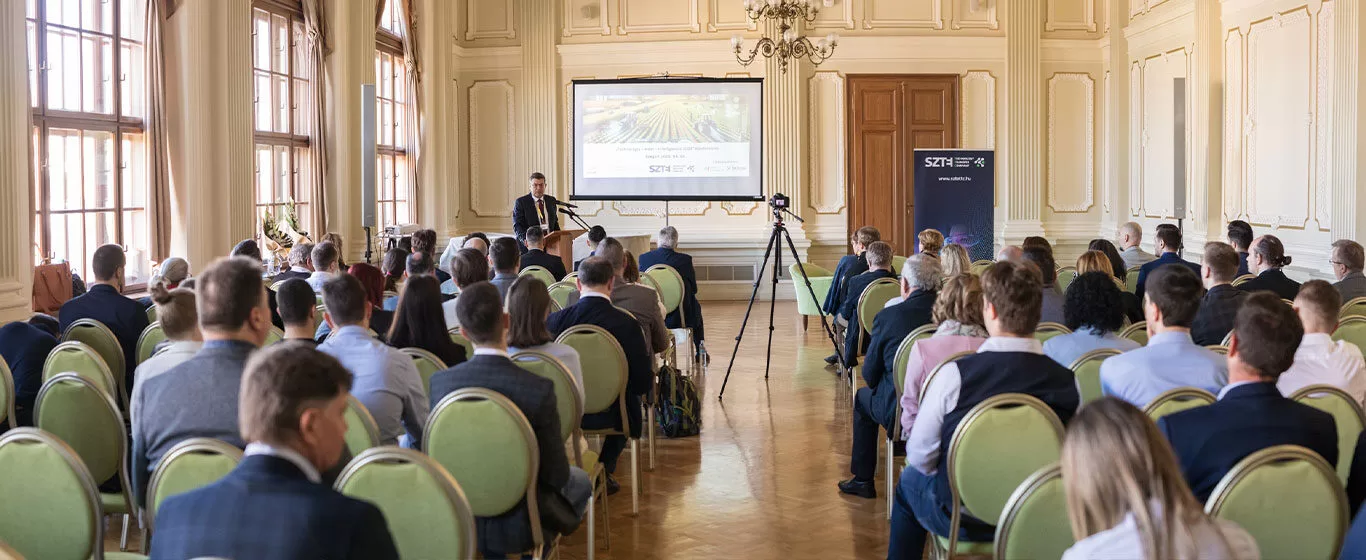
A Banking Paradigm Shift: Efficiency as a Prerequisite for Survival
In his keynote speech, Dávid Hollósi, Executive Director of the Agricultural and Food Industry Division of MBH Bank, emphasized that competitiveness in agriculture is no longer defined by output volume alone, but by informed, data-driven decision-making. He pointed out that the challenges facing the sector—from climate change and geopolitical instability to demographic pressure—can only be addressed if agricultural enterprises unlock and mobilize internal efficiency reserves.
He also outlined how financial institutions are adapting: they must now offer data-driven, sector-specific financing instruments and support companies that are open to innovation.
Practical insights were shared by Dr. Emese Szabó (KITE Zrt.), Gábor Asztalos (National Stud Farm and Educational Estate Zrt.), and Márton Tolnai (CropOM-Hungary Kft.), with particular emphasis on sensor-based systems and remote sensing integration in agriculture.
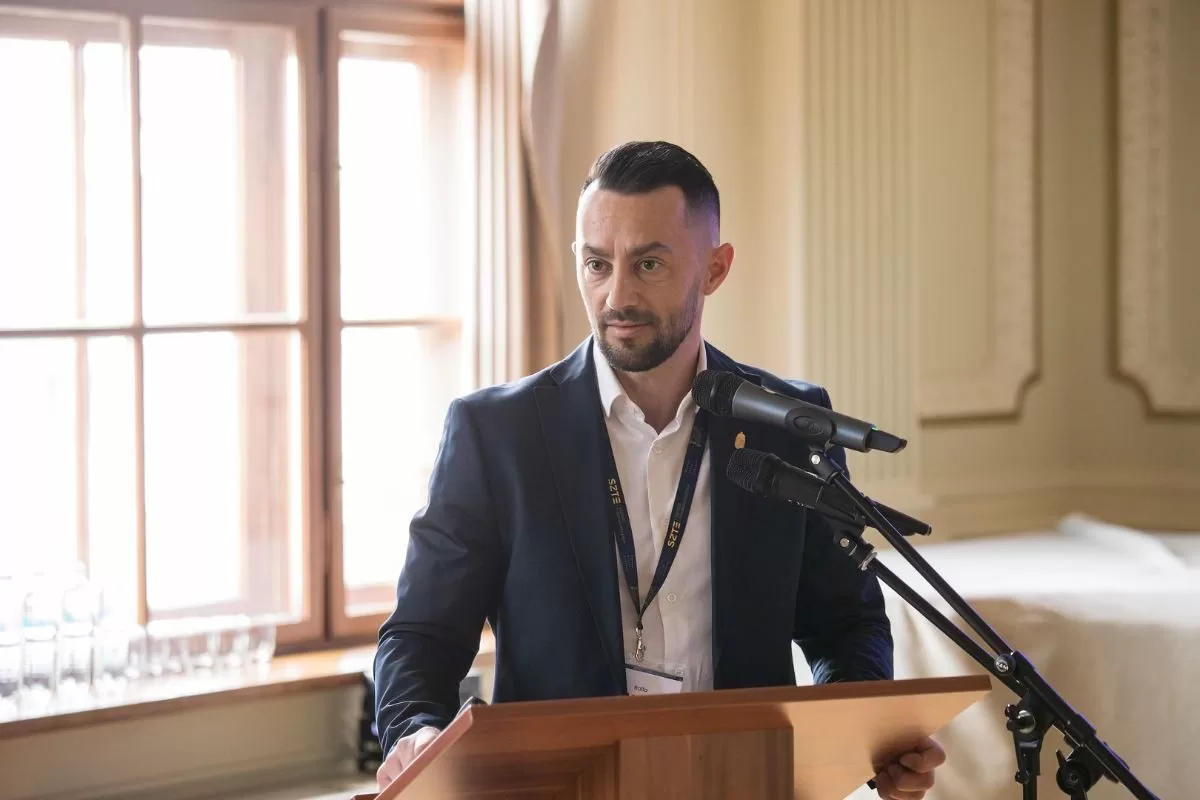
Shared Knowledge, Shared Future
The conference was further supported by the professional contributions of the Data-EDIH consortium and the Cibus Hungaricus Foundation. Péter Miklós Varga, Secretary General of the Foundation, focused his presentation on the convergence of technology, data, and intelligence.
The roundtable discussions made it clear that agricultural digitalization is not solely a technological matter—it also holds crucial societal, economic, and environmental dimensions. The effective deployment of artificial intelligence and Industry 4.0 technologies will only be successful if all actors in the innovation ecosystem—from universities and startups to international organizations—collaborate in shaping strategy.
According to the organizers, the event marked a true milestone in the history of Hungarian agritech innovation. The international attention—particularly the presence of UNIDO—not only reinforced the relevance of national efforts but also opened new horizons for the Hungarian agricultural sector.
